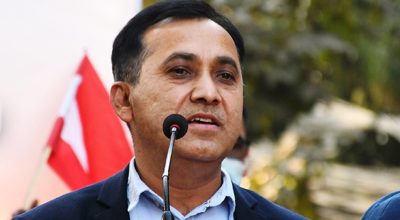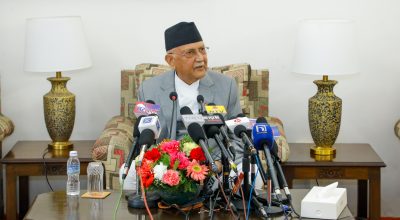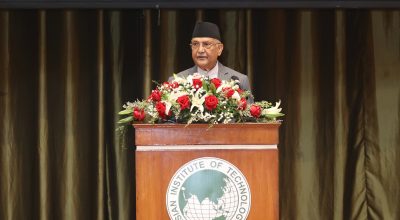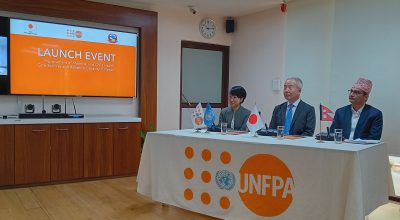
Narayan Prasad Ghimire
Kathmandu, June 25: Technology is an indispensable part of information ecosystem. The surge of artificial intelligence (AI) in recent time is undoubtedly in the front to this regard.
The emergence, spurt and immersion of AI in the information ecosystem have brought a host of challenges and opportunities together. The capacity for its wise use is therefore a global urgency.
The information pollution fueled by the AI is nagging the researchers, media persons, academia, and CSOs alike quite a while, as the information consumers are at the receiving end with their ability slow off the mark to negotiate the troubled atmosphere.
The digital age further triggered by the AI has disrupted the traditional methods of production, gate-keeping, dissemination and consumption of information, thereby blurring the line between a piece of information and news. It has resulted into a clarion call for information integrity worldwide.
The clean information atmosphere not only builds informed citizenry but also fosters professional journalism, prop up participatory and inclusive policy and decision-making, create atmosphere for human rights and respect to science and truth.
When it comes to information ecosystem, the voluminous production to educate the world from the United Nations counts much. In its recent publication, the UN has furnished recommendations to the multi-stakeholders on how they could build information integrity.
“United Nations Global Principles For Information Integrity: Recommendations for Multi-stakeholder Action” is the publication released on Monday (June 24), calling the multiple sectors including tech industries, AI entreperenurs, media, states, advertisers to help ensure people traverse information space in a safe way.
The report has set five principles for the information integrity. They are- societal trust and resilience; independent, free and pluralistic media; transparency and research; public empowerment; and healthy incentives.
The UN document has expected the UN members that they show firm commitment to the human rights while fostering these five principles. The urges and recommendations made to different sectors have substantiated the need that building information integrity is a shared responsibility.
“The Global Principles build on the ideas proposed in Our Common Agenda and in the United Nations Secretary- General’s policy brief 8: information integrity on digital platforms,” the document read.
It called on the tech companies to integrate safety and privacy from design to delivery; uphold labour standards; develop industry standards; and elevate crisis response.
Similarly, private sectors, fact-checking organizations and networks, political actors, news media, advertisers, research and civil society are also given recommendations on their roles to foster information integrity.
Risk reduction thru AI transparency
It is believed that there is an engagement of government, private and public sector actors at least in one stage of AI system life cycle. “Emerging risks can be mitigated by prioritizing transparency and fairness in the life cycle of AI technologies. A collaborative effort across government, technology companies and academic and research institutions is needed to ensure that AI is designed, developed, deployed and decommissioned safely and responsibly across its life cycle,” the UN document underlined.
The AI actors are recommended to “ensure safe, secure and trustworthy AI, commission independent, audit, respect intellectual property, display provenance, support literacy, and enable safer feedback”.
Launching the document on Monday, UN Secretary General Antonio Guterres observed, “Science, facts, human rights, public health and climate action are under attack.”
He insisted on the information integrity for democracy – which, he argues, depends on a shared, fact-based perception of reality.















